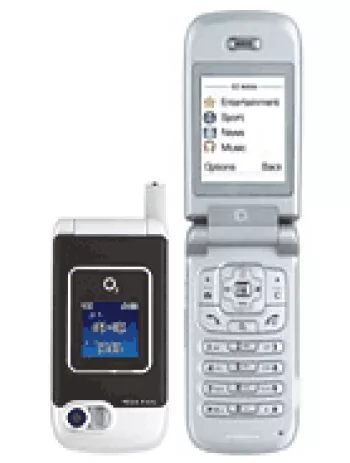
Overview of O2 XDA Zinc
The O2 XDA Zinc, released in December 2006, was a notable entry in the world of personal digital assistants (PDAs) and smartphones. Aimed at professional users, it offered a combination of messaging capabilities, computing power, and connectivity. Despite being discontinued now, it remains an interesting example of early smartphone technology.
Body and Design
The device came with dimensions of 109 x 58 x 22.6 mm and weighed about 175 grams, making it slightly bulky by today's standards but typical for devices at the time. It featured a full QWERTY keyboard, which was a significant advantage for professionals who needed to manage emails and documents on the go. The Mini-SIM was a standard for devices during that era, facilitating network connectivity.
Display
The O2 XDA Zinc featured a 2.8-inch TFT resistive touchscreen capable of displaying 65K colors. The screen resolution was 240 x 320 pixels, with a 4:3 ratio which resulted in approximately 143 ppi density. Although not striking by today's display standards, it was adequate for the business applications and media of the time.
Platform and Performance
Operating on Microsoft Windows Mobile 5.0 PocketPC, it was built for productivity. The operating system supported a suite of Microsoft applications which were crucial for business users. The device was powered by an Intel XScale PXA 270 520 MHz processor, providing sufficient processing power for applications and multitasking expected at that time.
Memory and Storage
In terms of memory, the O2 XDA Zinc offered 64MB of RAM and 128MB of internal ROM storage. It also supported a miniSD card slot for expanding storage, which was essential as the demands for data and applications grew. This expandable memory was an important feature for users who required more storage space for documents and applications.
Camera
The device was equipped with a 2 MP main camera, featuring an LED flash that allowed for basic photography and video recording. In addition, it had a VGA front-facing camera, primarily designed for video calls, aligning with its business-oriented features.
Audio and Connectivity
Audio capabilities included a loudspeaker and support for downloadable polyphonic and MP3 ringtones. However, it lacked a 3.5mm jack, which was a downside for users who preferred using wired headphones. Connectivity features included Wi-Fi 802.11b/g, Bluetooth, and an infrared port, which were essential for transferring data and connecting to the internet or other devices. The miniUSB port was also included for charging and data syncing.
Battery Life
The O2 XDA Zinc was powered by a removable Li-Ion 1300 mAh battery. It offered up to 220 hours of standby time and up to 5 hours of talk time. While these specs seem minimal now, it was competitive for the time and reflected the typical power management capabilities of devices using similar technology.
Additional Features and Pricing
Other notable features included a basic browser capable of WAP 2.0/xHTML and HTML (PocketIE), allowing users to access the internet, albeit with limitations compared to modern smartphones. At the time of its launch, the price was about 240 EUR, placing it in the high-end category for those years.
Conclusion
The O2 XDA Zinc was a robust smartphone for its time, providing professionals with reasonable computing power, a range of connectivity options, and essential multimedia features. As a relic of the early smartphone era, it represents the foundation upon which modern smartphones have been built, reminding us of how far mobile technology has come.
Key Features of O2 XDA Zinc
- Connectivity: Supports GSM/UMTS networks with 3G capability and speeds up to 384 kbps.
- Keyboard: Equipped with a full QWERTY keyboard for easy typing.
- Display: 2.8-inch resistive touchscreen with a resolution of 240 x 320 pixels.
- Operating System: Runs on Microsoft Windows Mobile 5.0 PocketPC.
- Performance: Powered by Intel XScale PXA 270 520 MHz processor.
- Camera: 2 MP rear camera with LED flash and a VGA front camera for video calls.
- Connectivity: Wi-Fi 802.11b/g, Bluetooth, and Infrared port available.
- Memory: Expandable storage via miniSD card slot with 64MB RAM and 128MB ROM.
- Portability: Compact dimensions at 109 x 58 x 22.6 mm and 175 g in weight.
- Battery: Removable 1300 mAh Li-Ion battery with up to 220 hours stand-by time.
- Design: Available in a sleek silver color.
Disadvantages of O2 XDA Zinc
- No 3.5mm headphone jack, limiting the use of standard headphones.
- Low screen-to-body ratio (~38.4%), resulting in less display area.
- Limited color depth with only 65K colors.
- Outdated operating system (Microsoft Windows Mobile 5.0 PocketPC).
- Low internal memory (64MB RAM, 128MB ROM) and reliance on miniSD for expansion.
- No GPS functionality for positioning.
- Lacks FM radio, limiting entertainment options.
- Chunky build with a thickness of 22.6 mm and a weight of 175 g, making it less portable.
- Discontinued status, impacting software updates and support.
- Only a VGA front camera, resulting in lower-quality video calls.

View Also
More Phones
All Rights Reserved +13697 Phones © Mobilawy 2025

























